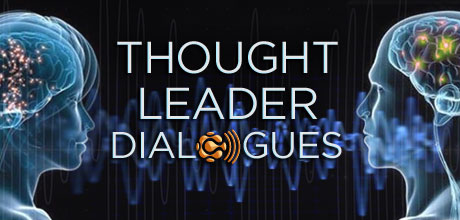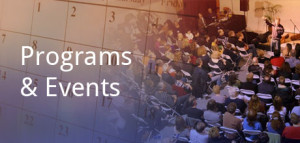Soul Prints – Your Path to Fulfillment

Links
The Evolution of Soul Prints
The Soul Print idea originated spontaneously in Marc Gafni’s teaching at an inspired talk he gave in Del Ray Beach, Florida, to a crowd of some five hundred retirees. The retirees had moved to Florida to live the good life, yet seemed adrift, sad, and not without some large degree of pathos. In that talk, Marc Gafni spoke to them of their Soul Print, the unique essence of self that a person is born to realize.
Soul Prints began for Marc Gafni as a dualistic idea, which expressed the mission entrusted by God to each and every individual as a direct function of their being created Homo Imago Dei, in the image of God. As Marc Gafni’s own realization grew, Soul Prints evolved to an expression of a deeper non-dual experience of reality.
When Soul Prints was published in 2001, however, Marc Gafni hid the non-dual implications of Soul Prints in several elliptical passages, feeling that it would have a broader healing effect coming out of a God-in-the-second–person framework, this being familiar and accessible to many more people than the more limited God-in-the-first-person, non-dual framework.
In the Hebrew edition, which was completed in 2004, Marc Gafni―together with Avraham Leader―added a large appendix consisting of forty pages of primary source original footnotes. This roots Soul Prints firmly in the non-dual, mystical tradition of Kabbalah.
In Marc Gafni’s three-volume work on Mordechai Lainer, the founder of the Izbica lineage, he devotes the first several chapters to a partial tracing of the intellectual history of the Soul Print/Unique Self idea. In this work, he uses both the term Soul Print and Unique Self.
In Marc Gafni’s current writing, he is working on a new book called Unique Self No Self; The Path of Evolutionary Enlightenment together with a senior teacher in a No Self tradition.
Part of Marc Gafni’s move from Soul Prints to Unique Self, a term which can be held more easily in the non-theistic traditions, was catalyzed by conversations with Musho Sensei Diane Hamilton and Pandit Ken Wilber in the early spring of 2006.
At around the same time, at Ken Wilber’s invitation, Marc Gafni presented the core Unique Self teaching to a group of senior teachers who had gathered for two days of study and dialogue by Ken.
As a result of this teaching and dialogues between Marc Gafni, Ken Wilber, and Diane Musho Hamilton, a Unique Self module was incorporated into the formal, written curriculum of Integral training and theory. It was also adopted as a core module in Zen Master Genpo Roshi’s Big Mind teaching, and appears as such in his Big Mind book. Sally Kempton recognized its core affinity with Hindu Kashmiri Shaivism and Indian Temple Dance, and Yoga Master Sofia Diaz received its relevance for her spiritual teaching. Brother David Steindl-Rast, Jim Marion, and John Forman recognized its significance for expressing core ideas in their mystical Christian lineages, even as Zen Monk Vidyuddeva incorporated it into his own flourishing Buddhist teaching. Many other spiritual teachers who attended that workshop sent e-mails or shared orally how they incorporated some form of Unique Self teaching in their work.
Part of the reason it was received so deeply by so many profound spiritual teachers is that the teaching itself had significantly evolved since Marc Gafni first began sharing it many years before. As Marc Gafni’s own realization deepened, the teaching of the Heart Sutra, which centuries later became so important to Nagarjuna, “Emptiness is Form and Form is Emptiness,” came to hold for Marc Gafni the paradoxical essence of the Unique Self/No Self teachings. It is the dialectic of experience―between being Unique Self and No Self or between being SomeOne who is EveryOne and NoOne―that crystallized in Marc Gafni’s own realization and thus evolved the Unique Self teaching significantly.
In a spiritual dialogue with Andrew Cohen in Tel Aviv in December of 2005, Marc and Andrew took strong issue on the place of the realization of individual uniqueness as a key moment in the spiritual quest, with Andrew strongly arguing for the Impersonal Stand, and Marc strongly arguing for the Personal Stand. As the conversation unfolded that evening and in later dialogues that week, ensuing further in e-mail correspondence between Marc and Andrew, they realized that in their depth understandings, Marc Gafni’s notion of Unique Self and Andrew Cohen’s notion of Authentic Self were in fact very close to each other. Both Marc Gafni and Andrew Cohen taught that there were in effect two levels of uniqueness. In Marc Gafni’s framing there is the pseudo uniqueness of the psuedo self, which is an expression of pseudo eros as Marc Gafni discusses it in his work The Mystery of Love and in the audio series On the Erotic and the Holy. This is transcended as one realizes one’s true nature. One’s true nature is Ayin. The vast fullness of divine depth which is empty of all that is surface and superficial. In this sense, Mordechai Lainer of Izbica teaches, “The opposite of the holy is the superficial.” Once one has realized one’s true nature, this expresses itself in the manifestation of one’s radically Unique Self. The Unique Self, the snowflake essence of the individual soul, which unlike a snowflake never melts, has a specific, special and wholly unique contribution to make to the healing and repair, the TIKKUN, which is more correctly translated as, the EVOLUTION of reality. Once we attain or even glimpse non-dual realization, we understand the evolution of reality as being no less than the evolution of God.
The implications of the Unique Self teaching are enormous in many areas. One area, as we have just implied, is R. Kuk’s theory “Evolutionary Enlightenment,” which will be the focus of Marc Gafni’s book on Unique Self referred to above. The core of the meeting between Andrew Cohen and Marc Gafni was in the excitement of recognizing a co-revolutionary in the great and only task of human/divine evolution.
A second implication, referred to above, which we want to unpack just a bit more here because it is so important, is the relation of the individual to “THE STORY.” The classic spiritual stance found in places like the Course in Miracles and in Theravadan Buddhist teaching demands that the spiritual adept leave the STORY behind. This stance is strongly rejected in the Unique Self teaching.
Leave the pettiness of the story behind―Yes!
Leave the ritual of rejections which cause us to become UnLove and reject in return―Yes! But the STORY matters. Having the spiritual integrity to move beyond the inertia of laziness and sloth and find out the depth of a STORY; all perspectives on a STORY; what lies behind the PSEUDO NARRATIVES being spun in order to reveal the deeper contours of the more TRUE story; the STORY which takes most perspectives into account and weighs them FAIRLY untainted by egoic bribery; this is essential for one’s spiritual integrity. To a-void this spiritual obligation is to reject the Unique Self, which in the highest non-dual understanding is no less than to reject God.
Table of Contents
- From Loneliness to the Good
- The Soul Print Box
- The Promise of Mere Joy
- Soul Print Witnessing
- Soul Print Receiving
- Receiving the Unknowable Soul Print
- Soul Print Challenges
- The Call of the Soul
- Characteristics of Calling
- Counterfeit Calls
- The Joy of the Call
- Live Your Story
- Tell Your Story
- Reclaim Your Story
- Renew Your Story
- The Soul Print Invitation
- Scholar’s Page
- About the Author
Soul Prints – Scholar’s Page
This book is, God willing, the first in a series of books on what I call Personal Myth. Personal Myth seeks to unpack the implicit structures of Biblical and Kabbalistic thought on our inner emotional and imaginative lives. Topics include laughter, tears, Eros, dance, silence, uncertainty, anger, joy, fear, Lillith, and loving. On these topics, I have written (or hope and pray to write) monographs or books that will form part of the library of the School of Personal Myth. Some of the books will be more formal and scholarly in nature, others will be academic, and still others will use the more accessible style of this volume. There are a number of other scholars who are doing pivotal work in various arenas of personal myth. I benefit almost daily from conversation and interaction with them.
My core belief is that the pathways of personal myth form the high road toward the growth of the spirit for which we’re born. It is in the living of our personal myth that we realize our soul print.
In terms of intellectual history, Personal Myth is a reformulation and expansion of the classic Hasidic ideal of Devekut―the realization of and merging with the indwelling divine spirit in man.
This book in particular, and the specific soul print philosophy it describes, finds its roots in a particular strain of Hasidic thought―namely the path of Pschisca, Lublino, Kotz, and Ishbitz. And let the hint be sufficient for the wise.
Editorial Reviews
Amazon.com’s Best of 2001
Rabbi Marc Gafni is a Kabbalist, someone who studies the mystical interpretations of biblical books, handed down over many generations. Through his studies Gafni became fascinated with the power of biblical myths to awaken the soul while also helping us understand our earthly purpose. The more he delved into the Kabbalah, the more he became interested in the individual blueprint of the soul–how each person seemed born to a different soul-driven destiny.
“Your soul print is your personal signature,” explains Gafni. “It is the contour and content of your soul–it’s character… It is even more singular to you than your genes and chromosomes.”
In blending his two passions, “soul prints” and myths, Rabbi Gafni created an ambitious spiritual self-help book filled with sage advice on living in connection with the soul. Don’t be squeamish about the self-help mission. Gafni’s narrative reads more like a personal counseling session in a rabbi’s private office–intelligent, warm (expect lots of chuckles), occasionally tangential, but mostly filled with practical guidance. He also inserts numerous sidebars that offer “Soul Print Practices,” such as “Make a list of the seven wonders of your world” or “Take sensual risks. Be creative with your senses in how or what you eat, or make love.” –Gail Hudson –.
From Publishers Weekly
Just as fingerprints are unique, so, too, says Rabbi Gafni, are soul prints: each human soul has an individual mark that it leaves behind on everyone it touches. Gafni, dean of the Merlitz Public Culture Center in Israel, weaves together autobiographical reflections with tips and exercises designed to help readers discover their soul prints and find fulfillment. Gafni begins with the premise that everyone is lonely and many people look for cures in places where they will never find them, such as sexual encounters. Many of the exercises in this splendid book are designed to help readers confront, and then cure, that loneliness. Gafni suggests that readers share what they learn while reading this book with a lonely person they know. Readers are then asked to make a “Soul Print box” that contains the things that are most important to them, and then to show the contents of that box to one other person. Gafni advocates the practice of random acts of kindness: “Bring happiness to one person each week, for no apparent reason.” His tremendous breadth distinguishes this volume from so many spiritualized self-help tomes. He draws on the fantasy novella Flatlands and the teachings of Talmudic rabbis, on psychologists and prophets. He tells his own stories and biblical stories. Though steeped in Jewish wisdom, this book will be accessible and helpful to readers of many faiths. Gafni occasionally states the obvious (as when he notes that if “after a long day of living your life, you feel as if you are on the verge of tears,” something might be amiss). But those few banalities can’t ruin this insightful book. (Mar.) Forecast: This book is being published in conjunction with a major PBS special by the same title, scheduled to air in early March; this should have a significant impact on book sales. Gafni will be doing a 10-city author tour later that month.
Copyright 2001 Cahners Business Information, Inc.
Link to Purchase:















